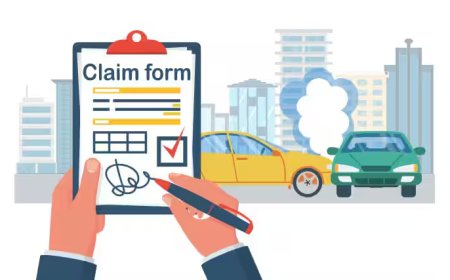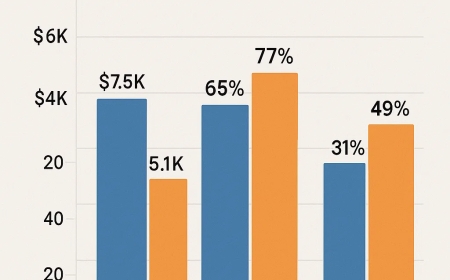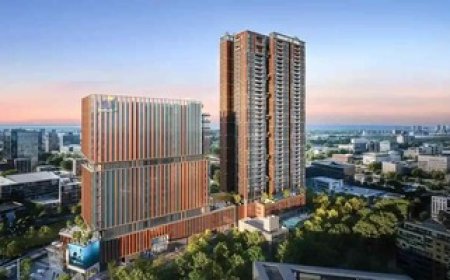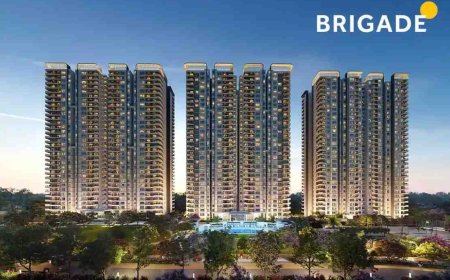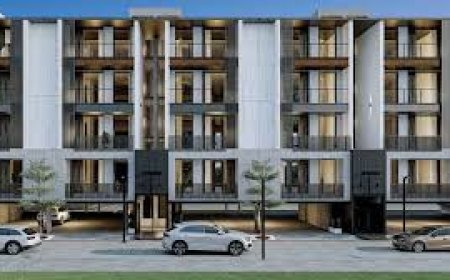Who Can Buy Properties for Sale in Qatar?
Qatar has opened up significant opportunities for real estate investment in recent years, positioning itself as a competitive market in the Gulf region. As the country continues its rapid modernization and prepares for long-term economic diversification, more peopleboth residents and non-residentsare exploring the option of owning property here.
However, the eligibility and rules around who can actually buyproperties for sale in Qatar depend on various legal and policy frameworks. This article breaks it all down: who can buy, where they can buy, and what they need to know.
Citizens of Qatar
Qatari nationals face no restrictions when it comes to buying property. They can purchase land, apartments, villas, and commercial real estate in any location across the country. Many locals invest heavily in real estate both for personal use and for rental income. In fact, real estate is one of the most common forms of investment among Qatari families, alongside businesses and stock portfolios.
GCC Nationals
Citizens of other Gulf Cooperation Council (GCC) countriesnamely Saudi Arabia, UAE, Kuwait, Oman, and Bahrainalso have privileges in Qatars real estate market. While they cannot access all areas unrestrictedly like Qatari nationals, they are permitted to buy in select zones and projects that the government has designated for GCC ownership. These typically include high-end residential areas and commercial developments.
Foreigners and Non-GCC Nationals
Perhaps the most significant shift in Qatars real estate landscape is the allowance for foreigners to purchase properties. Historically, foreign ownership was either prohibited or limited to long-term leases. Today, thats changed. Under Law No. 16 of 2018 and Cabinet Decision No. 28 of 2020, non-Qatari individuals and companies can now own property in specific areas on either a freehold or leasehold basis.
Freehold ownership grants the buyer full ownership of the property and the land it stands on, permanently. Leasehold, on the other hand, usually offers long-term leases of up to 99 years, which can be renewed. Foreign investors are allowed to purchase freehold properties in areas such as:
-
The Pearl-Qatar
-
West Bay Lagoon
-
Lusail City
-
Al Khor Resort
-
Msheireb Downtown Doha
These locations are highly developed and cater to expatriates and investors. They offer modern infrastructure, luxurious amenities, and strategic access to key parts of the city. One of the most popular destinations among expats is The Pearl-Qatar, known for its waterfront views, high-end shopping, and cosmopolitan lifestyle.
Residency Through Property Ownership
Another major incentive for foreigners is the possibility of obtaining residency through property ownership. According to the current laws, if a foreigner purchases a property valued at a minimum of QAR 730,000 (approximately USD 200,000), they are eligible for a renewable residency permit. If the property value exceeds QAR 3.65 million (about USD 1 million), the residency permit includes additional benefits such as access to healthcare and education services provided by the government. This has made Qatar an increasingly attractive market for long-term investors and families.
Corporate Ownership and Foreign Companies
Foreign companies also have avenues to purchase property in Qatar, especially in free zones and business-designated areas. These areas are often structured to attract international businesses, offering incentives such as 100% foreign ownership, tax exemptions, and simplified licensing. Some of these zones include:
-
Qatar Free Zones Authority (QFZA)
-
Qatar Financial Centre (QFC)
-
Qatar Science & Technology Park (QSTP)
In these zones, companies can lease or buy commercial spaces and benefit from operational flexibility thats rarely seen in other GCC markets.
Process and Legal Considerations
Buying property in Qatar, whether as a resident or a foreigner, involves due diligence and legal documentation. The steps usually include:
-
Property Search: Using licensed real estate platforms or brokers to identify suitable properties.
-
Reservation Deposit: Paying a deposit to reserve the unit.
-
Sales Agreement: Signing a legal contract between the buyer and seller.
-
Ownership Registration: Registering the property with the Real Estate Registration Department at the Ministry of Justice.
Foreign buyers must ensure that the property is located within an approved zone and that the contract clearly outlines the terms of ownership or leasehold. Legal advice is strongly recommended to navigate the process correctly.
Investment vs. Personal Use
Buyers typically fall into two categories: investors and end-users. Investors often target apartments or office spaces that generate rental income, while end-users look for homes, villas, or penthouses. If youre considering buying a villa, you should weigh certain factors such as location, community amenities, and privacy, as discussed in this guide on things to consider before buying a villa in Qatar.
Each type of property comes with its own advantages and trade-offs. For example, apartments in The Pearl are easier to rent out due to high demand, while villas in West Bay Lagoon offer more space and exclusivity but come with a higher entry cost.
Property Taxes and Fees
One appealing aspect of buying real estate in Qatar is the absence of property taxes. Owners are not required to pay annual property taxes, although there are one-time registration fees and legal costs associated with the transaction. These costs are relatively low compared to other global markets, further boosting the attractiveness of the investment.
Living in Qatar as a Property Owner
Owning property in Qatar doesn't just serve financial goalsit also enhances lifestyle. Whether you're relocating or planning extended visits, the living standards in Qatar are high. Neighborhoods like Lusail City offer smart infrastructure and green planning, while areas like Al Sadd and Msheireb cater to those who prefer being closer to the city center. For a closer look at daily life, see this article on average living expense in Qatar, which outlines the cost of utilities, groceries, transportation, and more.
Additionally, Qatars stable economy, high safety standards, and expanding infrastructure contribute to the long-term value of real estate. The countrys investment in projects beyond the FIFA World Cupsuch as metro expansions, tourism development, and the Qatar National Vision 2030point toward a future of sustainable growth.
Conclusion
In summary, the market for properties for sale in Qatar is open to a wide range of buyers. Qatari citizens and GCC nationals enjoy broader access, while foreigners can own property in designated zones with options for both freehold and leasehold ownership. Investors can benefit not only from rental yields but also from residency opportunities. As long as buyers understand the legal framework and select properties wisely, Qatar remains a viable and strategic destination for real estate investment.
For those exploring opportunities, it's important to research thoroughly and align property choices with financial goals and lifestyle needs. With the right approach, buying property in Qatar can offer a solid return on investment and a gateway to one of the most dynamic countries in the region.
External Sources for Reference:








&srotate=0)




